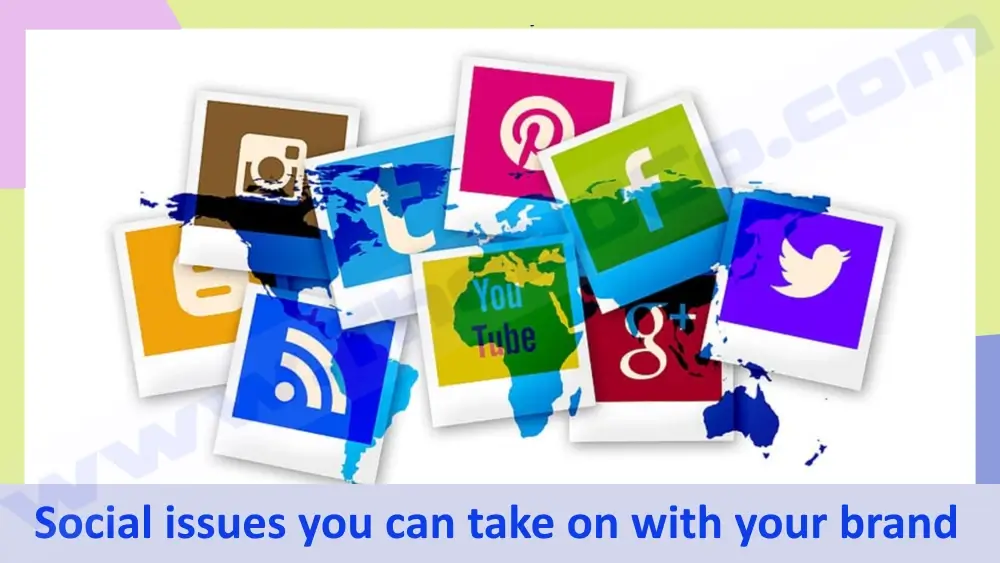The way brands should communicate with consumers has changed. This shift is accelerating due to Covid-19 and the economic slump that followed, but the development of brand marketing has already begun.
This shift is associated with increased social awareness. Customers are more conscious of and devoted to social issues such as climate change, inequality, health, and racism. As a result, they are looking for brands that validate awareness and are aligned with their own values.
Today’s consumer is driven by their morals and beliefs. This means they want to see brands that make the world a better place while making money, as opposed to customary consumers who may put price or convenience first. There has been an increase in the number of brands recognizing the value of retaining customers driven by belief both within and outside of their loyalty programs.
This trend is worth incorporating into your business strategies. You can do this by first setting up a good internet connection. Top Internet Service Providers (ISP) such as Cox, are widely used due to their convenience of service. Cox in particular provides fast internet speeds and high bandwidths, making it an ideal option. Additionally, it has a wide range of economical deals that can also be customized. You can avail this opportunity by contacting them at the Cox customer service number and even talk to their representatives about any questions you may have.
Wherever you look on social media today, you will see one or two stories. Some are personal, others professional, and some are completely unexpected. Brands are now developing social media strategies to be in the spotlight and not slip out of sight.
The world is controlled by social media marketing. The environment is currently developing in the way people perceive and connect to the way events take place around them. Many brands address social issues through these networks, demonstrating their accountability to society.
Why do customers prefer brands associated with social issues?
The public believes that brands are well-positioned to overcome the gap between different groups of people and grab everyone’s attention. This is because of the fact that brands offer services and products that appeal to different customers and those brands have the resources and exposure to attract significant attention from the media. These issues can also increase consumer confidence in your brand and help them recover from any previous failures. Showing your brand’s humane side and sincerity on social issues is one way to construct and promote a transparency culture.
The public doesn’t just want brands to talk about social movements, they see social media as an ideal platform to do so. The public sees social media as an important way to regularly interact with others, including those with different views or beliefs, and stay up to date.
Should you associate your brand with social issues
Understandably, consumers now expect brands to have a drive. There must be something behind the brand that makes the customer believe in them and their mission. Talking about and supporting social issues is an effective way to show what your brand believes in and this can be rewarded in the following ways:
Higher revenue
Consumers consider brand trust as the third most important buying criterion. Therefore, when you build the trust of existing and new consumers by talking about a social issue that is significant to them, they will support your brand by buying and increasing sales.
Increases following
When customers see you promoting issues that are close to their heart or something they believe in, they automatically want to know more. This also results in a good word of mouth which then gets translated into an increased number of followers.
Higher brand awareness
An emotionally charged campaign highlighting an important social issue greatly increases the viral potential. When people are interested in something, they want to share it with everyone.
How can you support social issues?
It is more vital than ever that brands address social issues in a meaningful way and are in line with a particular brand image and voice. In an era of fake news and growing media awareness, the audience is becoming increasingly aware of factors such as posts that appear empty or performative without making major changes. Marketers are in jeopardy of ending up not properly analyzing how to balance the potential glitches between moving leads down the funnel and staying responsive to unexpected societal issues. However, recent events have confirmed what we saw in research: the public does not want brands to remain neutral or silent about the possibilities of social change.
Make sure your brand is taking the right actions to support your message before weighing your opinion on social media. Your actions as a company as a whole should align with what you post on your social media platforms otherwise you will invite backlash. Instead of avoiding talking about it or posting cryptic general messages, you should outline how you incorporate solutions of that into your company culture. Promote transparency by emphasizing on internalized challenges and discussions prominent in your brand.
Lastly, you need to sustain the position you take and ensure that your social media team replies to your followers and does not react negatively to any negative comments.
The last word
Undoubtedly, the social landscape will keep evolving and force marketers and the public on social media to constantly monitor and evaluate what they say, how they say it, and how they actually influence social movements. You can do your research and make use of recent metrics to guide your actions and don’t be afraid of the powerful opportunities that social media offers to guide and shape the conversation. Social media provides a significant platform for positively influencing social issues and engaging more with the public, even in times of lingering uncertainty.

